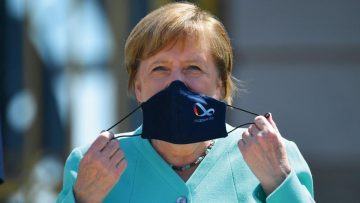Jürgen Habermas in Blätter:
 Thirty years after the seismic shift in world history of 1989-90 with the collapse of communism, the sudden eruption of life-changing events could be another watershed. This will be decided in the next few months—in Brussels and in Berlin too.
Thirty years after the seismic shift in world history of 1989-90 with the collapse of communism, the sudden eruption of life-changing events could be another watershed. This will be decided in the next few months—in Brussels and in Berlin too.
At first glance it might seem a bit far-fetched to compare the overcoming of a world order divided into two opposing camps and the global spread of victorious capitalism with the elemental nature of a pandemic that caught us off-guard and the related global economic crisis happening on an unprecedented scale. Yet if we Europeans can find a constructive response to the shock, this might provide a parallel between the two world-shattering events.
In those days, German and European unification were linked as if joined at the hip. Today, any connection between these two processes, self-evident then, is not so obvious. Yet, while Germany’s national-day celebration (October 3rd) has remained curiously pallid during the last three decades, one might speculate along the following lines: imbalances within the German unification process are not the reason for the surprising revival of its European counterpart but the historical distance which we have now gained from those domestic problems has helped to make the federal government finally revert to the historic task it had put to one side—giving political shape and definition to Europe’s future.
More here.
